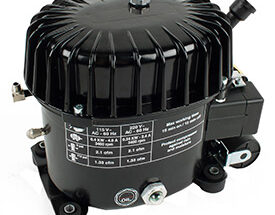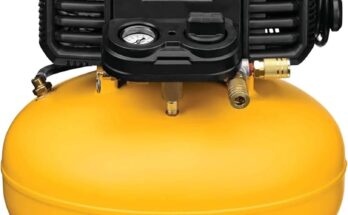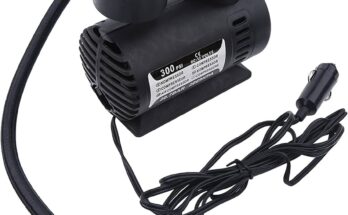Water can taint the goods and tasks you need to finish as well as harm air compressor equipment. The easiest way to avoid these situations is through preventive maintenance, but understanding how to keep water out of air compressor lines is also crucial. In our in-depth guide, learn how to remove water from air compressor systems and the harm that moisture does.
It goes without saying that water and air compressors don’t always get along. Your compressor may become easily damaged by water, necessitating expensive repairs or perhaps replacement. Fortunately, there are some things you can take to lessen the likelihood that water will damage your compressor by entering it. We’ll look at how to keep water out of air compressor lines in this blog post. Learn more by continuing to read!
Water in Air Compressor- Causes
These causes might contribute to moisture buildup.
Equipment Breakdown
An air compressor becomes increasingly susceptible to moisture as its internal components deteriorate. If the system hasn’t been properly maintained, it’s even worse. The system loses its ability to remove water with time and becomes less effective. In this case you have to look for how to keep water out of air compressor lines.
Environmental Elements
All air has some moisture, but humid air has a lot more. Additional condensation will form inside the device if your compressor absorbs the excess moisture, and then you have to search for how to keep water out of air compressor lines. There are various methods you can use to stop this. Start by relocating your compressors to a less humid location.
An Inadequate Piece
Your air compressor will heat up faster if you are using it above its capability. Since piston compressors produce more heat when operated for extended duration, this issue is more serious and leads to how to keep water out of air compressor lines. Purchase a bigger air compressor or a separation system to solve this problem.
Temperature Rising
Temperature increases are one of the most common causes of too much water in pneumatic air lines. The air that your pneumatics depend on becomes more humid as temperatures rise as a result of water evaporation and then you look for how to keep water out of air compressor lines.
Rapid Variations in Temperature
Rapid fluctuations in air temperature are another trigger. This may involve changes in the system’s internal temperature or variations in the temperature of the surrounding air where your operations take place.
Why Preventing Water in Air Compressors is Important
If you don’t look for preventing air compressor from water, your all efforts goes for how to keep water out of air compressor lines. Your air compressor is susceptible to extensive damage from water. It can cause corrosion and rust, as we previously discussed, which can reduce the lifespan of your compressor. Water can also make your compressor overheat, which might result in major issues. If you’re using an oil-lubricated compressor, the filter may also mix with the oil and result in lubrication problems. Each of these issues can be expensive to repair and, in certain circumstances, may even necessitate replacing your compressor.
How to Remove Moisture From Air Compressor
To do preventative maintenance and keep water out of your compressed air lines, follow these procedures for how to keep water out of air compressor lines.
Getting the Water Out
Draining extra water from the compressed air system on a regular basis is the first stage in your moisture control strategy. While draining the air compressor won’t get rid of the water that’s still in the air as vapor, it will stop extra liquid from accumulating in the tank and air supply lines.
After-Coolers
The first time water vapor condenses back into a liquid is in the after-cooler system. Temperatures are brought near to the ambient air temperature by after-coolers.
Air Receiver Tank
An air receiver tank can be used as a supplementary heat exchanger to cool the air as it is stored there. This device is useful for removing additional moisture from compressed air because it allows for the gradual removal of water when the temperature drops.
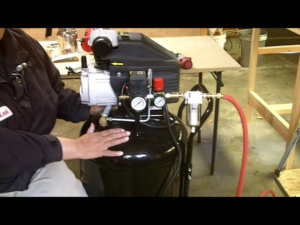
Filters Water Separator
With centrifugal force, these gadgets may remove up to 40 to 60% of the water in the air.
Air Dryers
A chilled air drier may chill the air to make it hold less moisture if you need to remove more moisture. When the extra vapor cools, it turns to liquid and is drained from the water trap by an automated drain valve.
Piping System
Water is purged from air piping by drip legs as the distribution system’s air cools. In these devices, condensation is collected as it forms using gravity. Multiple drop points with a water trap or drain may be present in the system.
Ways to Prevent Air Compressor from Water
Following are some of the greatest techniques to avoid moisture buildup altogether.
Utilize a Moisture Separator
One of the greatest ways to stop water from getting into your air compressor is with a moisture separator. Devices called moisture separators are used to take water out of compressed air. Therefore, this compressed air moisture removal successfully stops water from getting inside your compressor.
Employ an Air Dryer
Using an air dryer is another approach to stop water from getting into your air compressor. Before the air reaches the compressor, air dryers remove moisture from it.
Utilize an Inline Filter
Another efficient method of keeping water out of your air compressor is with an inline filter. Before the air enters the compressor, inline filters remove moisture and other contaminants.
Employ a Water Trap
Before the air enters the compressor, a water trap is a device that captures moisture in the air. Water traps are reasonably priced and work well to keep water from getting into your air compressor.
Use an Air Dryer with Desiccant
An air dryer that utilizes a desiccant to take the water vapor out of compressed air is known as a desiccant air dryer. Desiccant air dryers come in two varieties: heat regenerating and twin-tower. Heat is used in heat regenerative air dryers to replenish the desiccant.
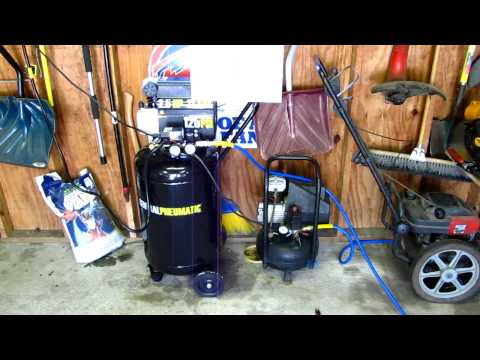
Maintain a Dry Compressor Room
Maintaining a dry compressor room is one of the greatest ways to stop water from entering your air compressor. Water will collect on the compressor and enter the air system if the compressor room is damp or humid.
Choose a Warm Location
Placing your air compressor in a warm location is another strategy to keep water out of it. When water vapor in the air condenses in a chilly environment, it can enter your compressor if it is situated there.
Ensure Compressor Insulation
Insulating your air compressor might assist keep water from getting into the system if you reside in a region with chilly winters. Insulating your compressor will keep it functioning more effectively for longer.
Establish Constant Temperatures
Keep an eye out for temperature variations throughout your system. When moving from a warmer to a colder environment, water vapor transforms into liquid. For this reason, you should design your pneumatic system to prevent such abrupt temperature fluctuations.
Modify the Pipe’s Direction
Normally, as water vapor condenses, it gathers and pools at the pipe’s bottom. Changing the locations where the other pipes link to the mainline is one technique to stop this water from getting into the rest of your system.
Conclusion
There you have it, folks! You now know how to keep water out of air compressor lines. By following these easy guidelines, you can prolong the smooth operation and efficiency of your air compressor. We really hope that this data will be useful for you to know how to keep water out of air compressor lines. We appreciate your reading!
Read More Articles
| What Causes Air Compressor To Fail |
| Where To Install Water Separator On Air Compressor |
| How Much Copper is in an Air Conditioner Compressor |
| Air Compressor For Pressure Washing |
